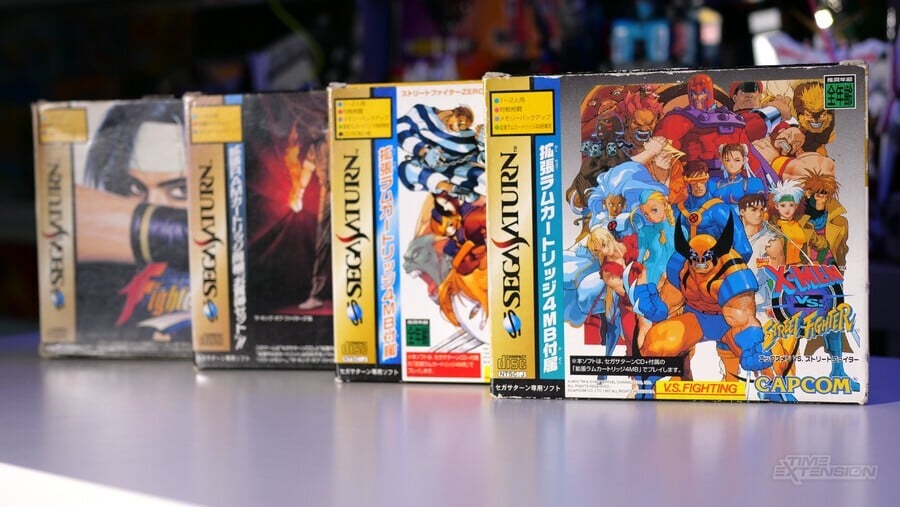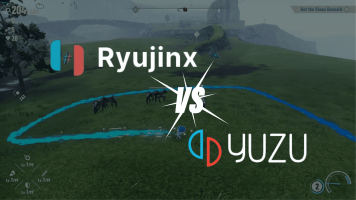Released in 1994 after Sega had successfully challenged the seemingly unstoppable Nintendo with its Mega Drive / Genesis console (total worldwide sales: 30.75 million), much was expected of the 32-bit Saturn. Sega knew that Nintendo wouldn't be releasing its next-gen system for a while, and, backed by the might of popular arcade properties like Virtua Fighter (Japan's biggest arcade game) and Daytona USA, the company could have the market all to itself.
However, as we all know, this was the hardware generation in which Sony decided to enter the ring, and its PlayStation system would become the dominant format of the '90s, selling a staggering 102.49 million units globally – almost as much as the NES and SNES combined, and more than ten times the 9.26 million Saturn consoles sold by Sega.
So, on paper, at least, it's fair to say Saturn was a failure. It sold a third of what its predecessor had managed and arguably contributed to Sega's eventual exit from the hardware arena at the turn of the millennium – but, as is so often the case in the age of "armchair experts" on sites like YouTube, this failure seems to have evolved into something much wider.
The Saturn has been proclaimed as a complete flop by many so-called historians, despite the fact that its library runs to over 1000 titles (more than twice the number of games released on the N64) and contains some of the greatest video games of that console generation, such as Panzer Dragoon Saga, Shining The Holy Ark, Virtua Fighter 2, Sega Rally Championship, Radiant Silvergun, X-Men vs. Street Fighter, Guardian Heroes, NiGHTS and many, many more.
Indeed, for those of us who are old (and grumpy) enough to have lived through this particular period in gaming history, Saturn arguably became the gold standard when it came to "hardcore" gaming experiences; its 2D prowess meant that it was the go-to system when it came to one-on-one fighting titles, with Capcom and SNK offering robust support via arcade perfect conversions, made possible by Saturn's handy cartridge slot and a range of memory-boosting RAM carts.
Granted, the console's presence in the West was rapidly diminished thanks to the dominance of the PS1 and Sony's ability to attract far-reaching third-party support, but anyone wise enough to purchase a Japanese Saturn (or find a way of getting import games to run on their Western system) would know that an embarrassment of riches awaited them; titles like Princess Crown, Bulk Slash, Hyper Duel, Soukyugurentai, Thunder Force V, King of Fighters '97, Street Fighter Zero 3 and many, many more were never released outside of Japan. Becoming a Saturn owner meant going the extra mile and perhaps spending a little more cash, but it granted access to a semi-exclusive club that, at the time, felt special and unique.
Saturn offered many things PS1 couldn't – including arcade-perfect ports of SNK and Capcom's fighting games. While PS1 got ports of these too, they often had features missing or were plagued by load times and jerky animation
This is the context that has arguably been lost as the decades have rolled by; many of the people who so loudly proclaim Saturn to have been a flop on YouTube weren't even alive when the console was in active service, so it's hardly their fault for not being aware of its status as the hardcore gamer's platform of choice. However, there's still no excuse for this apparent re-writing of history; framing Saturn as an abject failure does the console a criminal disservice.
That's something that Saturn fan site SEGA SATURN, SHIRO! is looking to remedy. Yesterday, it published a video on social media encouraging people to "change the narrative"; the video starts with that infamous announcement of Saturn's US launch at $399, and Sony hitting back on the same day with its $299 price tag – the first in many unfortunate events that would erode Sega's foothold in the West. It then splices together various soundbites taken from various YouTube "experts", which go hard on the "what went wrong with Saturn?" narrative before finally urging everyone watching to ignore the negativity and "play Sega Saturn".
It feels odd to even have to say any of this – and we do appreciate that we're almost certainly preaching to the converted here, given the audience of our site – but just because Saturn didn't sell as many units as the PS1 doesn't instantly make it a failure.
Sure, Sega would probably have loved to have shifted five or ten times as many Saturn consoles, but putting aside commercial concerns for a second and focusing instead on what it offers as a platform for entertainment, it's clear to anyone with eyes that the system is a treasure trove of amazing games – and the fact that it has over 1000 titles in its catalogue (many of which were Japan exclusives; it's easy to forget that it was more successful in its homeland than the Mega Drive was) shows there was still a receptive and engaged audience for Saturn, even if it sold a fraction of what its rival managed.
You could even argue, to a degree, that Saturn retained the "hardcore" sector of the gaming market, while Sony's PlayStation – like the Wii would do some years later – turned non-gamers into gamers. How many of us recall a friend or family member who was totally disinterested in video games prior to the PS1 turning up? Sony's console even turned older people into gamers – a remarkable achievement and one which helped the market grow massively, but those same people were not the type to hand over $100 to order an arcade-perfect conversion of Vampire Savior from a Japanese importer. If you were a dedicated gamer in the mid-to-late '90s, you probably owned a Saturn as well as a PS1 and N64.
The Saturn's Japanese library runs to over 700 games, and includes many titles which were never released in the West. To truly sample the best the console has to offer, you simply have to import
Of course, there will be some people who, due to the fact they had no means of getting their hands on imported games, will have bypassed Saturn completely. This is the fault of Sega's Western offices more than anything else. However, to blindly claim that Saturn was a disaster based solely on its performance in North America and Europe is misguided and would be akin to saying that the PC Engine was a bomb as well – something that very few people would say, despite the fact that it failed in North America and actually sold fewer units than Saturn.
So yes, it's certainly time to change the narrative here – in fact, it's time to celebrate Saturn for what it truly was and still is – a phenomenal console which had the misfortune of going up against what would become the world's leading video game hardware brand name over the next few decades. However, irrespective of that, Saturn gave gamers something PlayStation couldn't – hence the fact that it's still so beloved by a merry few to this very day.






